The search for the best Black love movies is always a topic of conversation, but we’re here to help bring it to an end!
I’ve watched the films. I’ve done the research. I’ve even scoured the internet for opinions beyond my own. And with all of that, I’ve now compiled what I believe is the best list of black loves movies you’re going to find anywhere.
Before we dive in, just some quick observations after watching a whole bunch of the best Black love movies ever made:
- A lot of our best and most noteable Black love movies came out in the 1990s. It’s no coincidence that this was the golden age of entertainment for Black folks in America.
- Actually, the 1980s were pretty good for Black movies as well, as Eddie Murphy, Richard Pryor and Bill Cosby were all making films. But for whatever reason, Black romance movies are not what came out of that decade.
- There aren’t all that many entries from the past decade. Streaming hasn’t really invested in the Black romance movie, and our divided attention has made it hard for the culture to pause and watch the same movies at roughly the same time.
- The quality of Black actors, and particularly, Black actresses in these movies is a testament to why we probably need more of these. Some of the culture’s best thespians came out of these romance stories, and I don’t think we’re minting them with the same regularity we once were.
A Raisin in the Sun (1961)
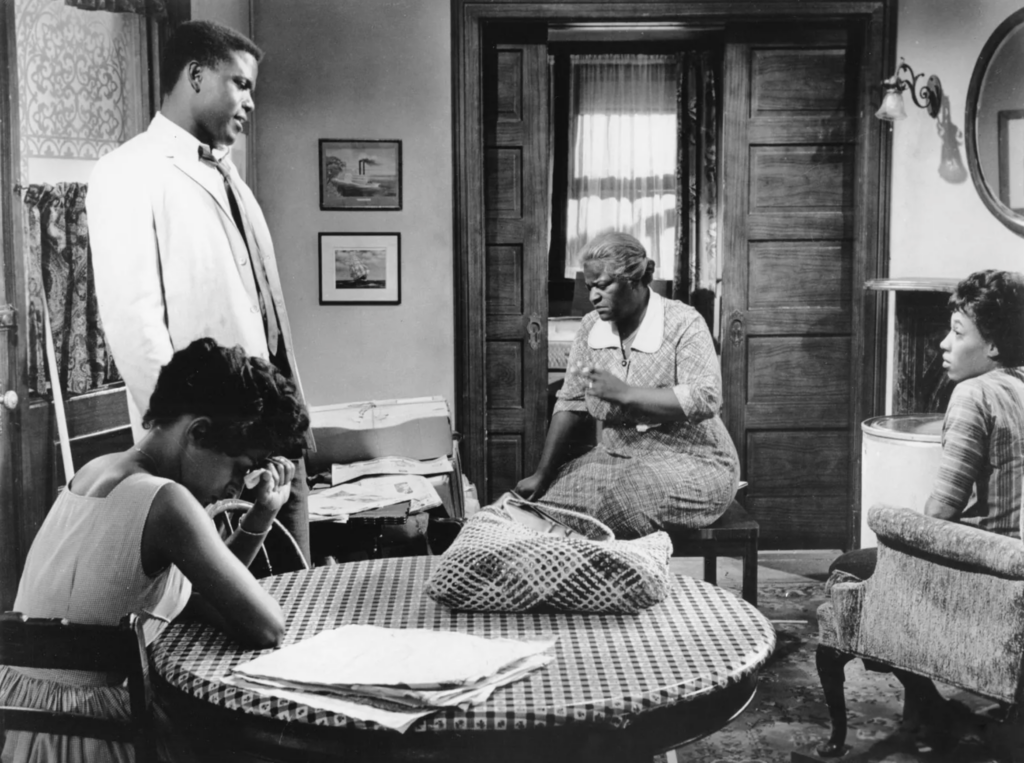
First on our list is a movie that may not necessarily be associated with Black love stories, but for the life of me, I can’t understand why.
While this Sidney Poitier starring movie doesn’t have your prototypical “will they or won’t they” couple at its center, the love stories between Beneathea and her suitors, Ruth’s pregnancy, and Walter’s relationship with his wife, make this a story that shows us the many sides of Black love in America. Mix in the dreams of the family, the racial oppression, poverty and gender expectations of the main characters, and what you have, in my opinion, is one of the greatest all-encompassing love stories of the century.
While the family at the center of this movie and their struggles to escape their less than desirable situation has long been the takeaway from the film, A Raisin in the Sun’s commentary on the enduring nature of Black love, against all circumstances, truly sets the tone for so many of the Black movies that would follow in its footsteps in the decades to come.
Boomerang (1992)
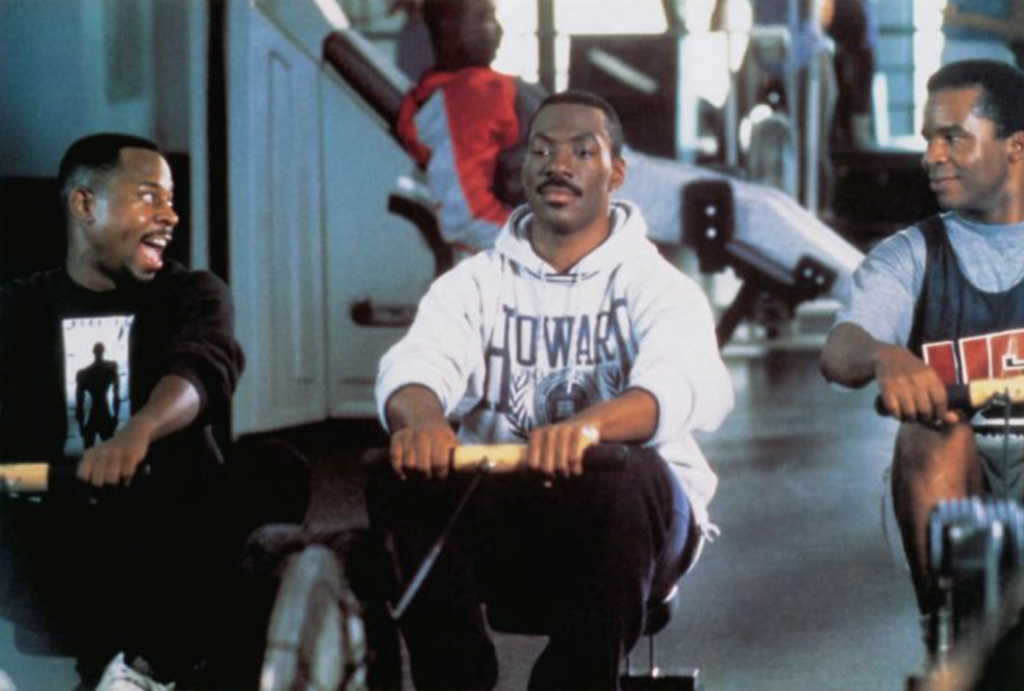
As a child of the 90s, I could be biased, but one of the things about Black movies from the 90s is that they just had so much talent. Boomerang was no different, as it starred Eddie Murphy, Robin Givens and Halle Berry—pretty much at the height of their powers. Notably, it may have been the first Black love movie in a deluge of such movies that would debut in the 90s; thus, it should come as no surprise that it was a little bit different from everything else before it, especially given that at its core, it was a movie made for Eddie Murphy, who isn’t really known for his romantic acting chops.
Boomerang was ultimately about a F-boy turned good before F-boys were a thing. Murphy’s role as “Maaaaaaaaaarcus” was that of a overly aspirational, playboy with no regard for anybody except himself. His friend, played by David Alan Grier, even tells him as much during a pivotal scene in the movie.
However, Murphy’s role is turned upside down when an equally aspirational, ladder-climbing, female colleague of his starts to play with his emotions. He now sees what it’s like to feel like the “lesser” one in a relationship, and he goes through all of the pains and emotions—in the most hilarious way possible. Ultimately, Murphy’s wake up call comes from a surprising place, showing him what true love really looks like. This love comeuppance turned happy ending would go on to become the foundation for a lot of Black love movies from the 90s. More than anything, the viewer walks away with a sense that even those with bad intentions can sometimes have good hearts.
Among Boomerang’s culture impact, was its celebration of a world in which Black people were thriving professionally, emblematic of the upwardly mobile times of the 90s and where we thought we were headed as a people throughout that decade.
Jason’s Lyric (1994)
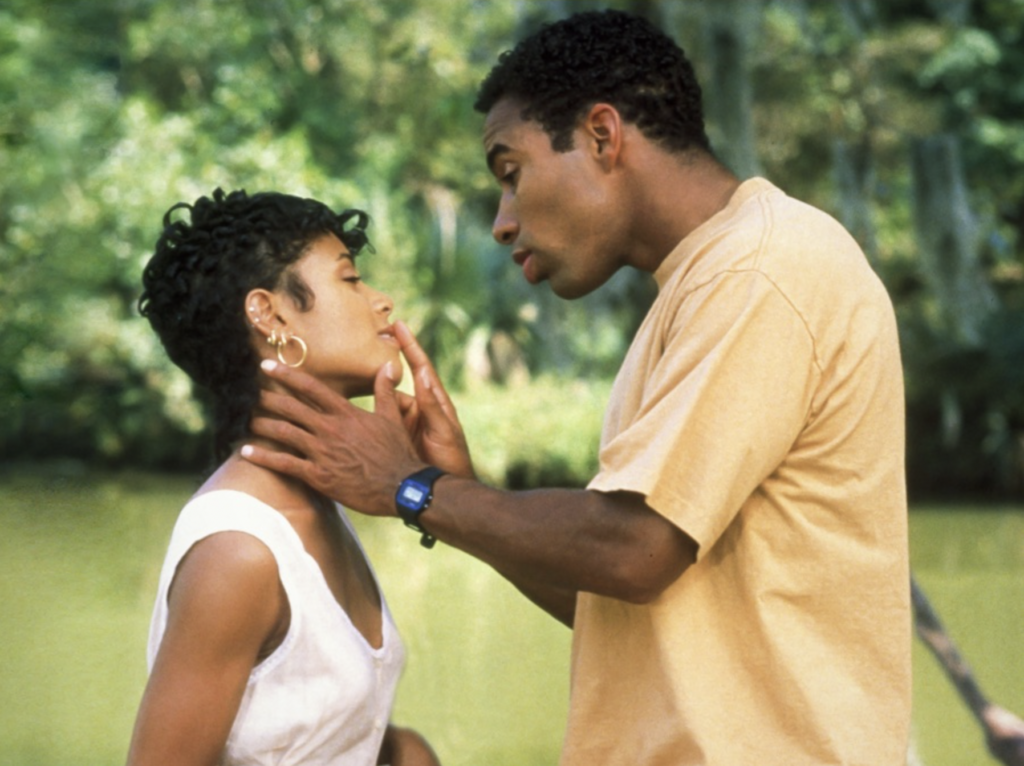
If I’m just giving my honest opinion, I don’t think a lot of the young folks have seen Jason’s Lyric, but I highly recommend they go out and watch it if they’re interested in stories about Black love.
Why?
Because Jason’s Lyric is the epitome of unfiltered Black love, as it embraced the multifaceted nature of Black love without apology.
Ultimately, the story was about Jason and Joshua, two brothers from a financially struggling family who shared a very complex relationship with one another. However, Jason finds solace in Lyric, played by Jada Pinkett, who ends up becoming more than just the love interest for Jason, but also someone who allows Jason to tap into himself and find what makes him special amongst all of the economic hardship, family disloyalty and violence going around him in his urban Houston dwelling.
The true beauty of this film is the intensity with which Jason and Lyric’s love is displayed on screen. You can see, hear and feel how they feel about one another through the film’s use of dialogue, evocative visual style, and dream-like cinematography. It captured a first love journey in a cinematic way that no other movie about Black love had done before or since.
Waiting to Exhale (1995)
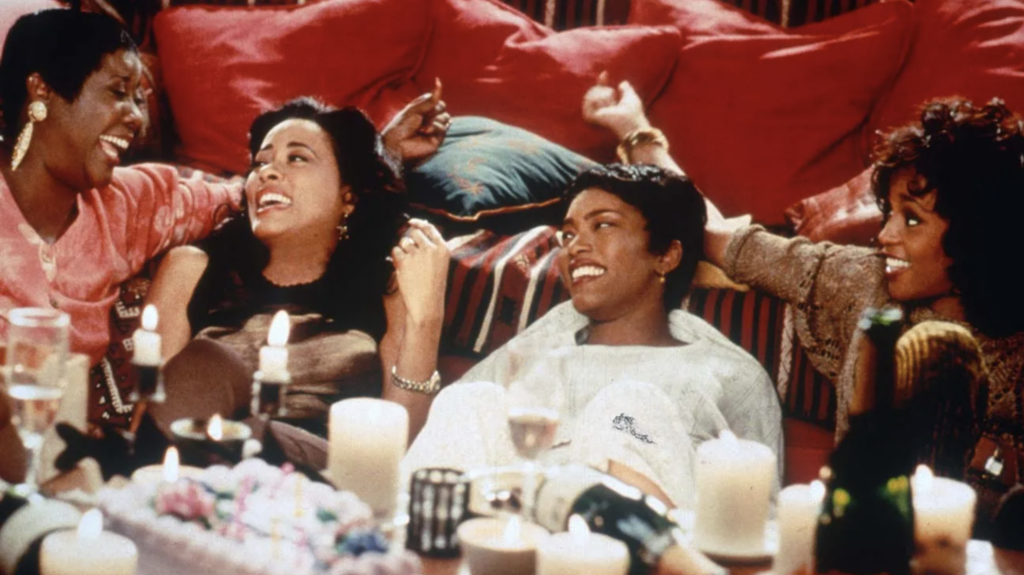
One of the most amazing trivia questions about Waiting to Exhale is, “who directed the movie?”
The answer?
Forest Whitaker!
Better yet? It was his first feature film!
Anyway, he did a great job directing the star-studded cast of Angela Bassett, Whitney Houston, Loretta Divine, Dennis Haysbert, Donal Faison, Wendell Pierce, and Lela Rochon.
There was also a spot for Kenya Moore.
I’ll just let that sit.
The movie ultimately tells the stories of four Black women navigating love, friendship and self-exploration. It’s most important gift to Black cinema, wasn’t just the love stories that it told, but that it told them from the viewpoint of fully-realized, strong, vulnerable, and well-meaning, Black women. And in truth, that was something that hadn’t been done before—at least, not from a major studio. It was an amplification for the complex lives of Black women, and even when showcasing their romantic relationships, made sure not to minimize the Black woman’s role as friends, mothers, societal contributors and competitors.
And of course, Waiting to Exhale gave us one of the best movie soundtracks of all-time.
Love Jones (1997)
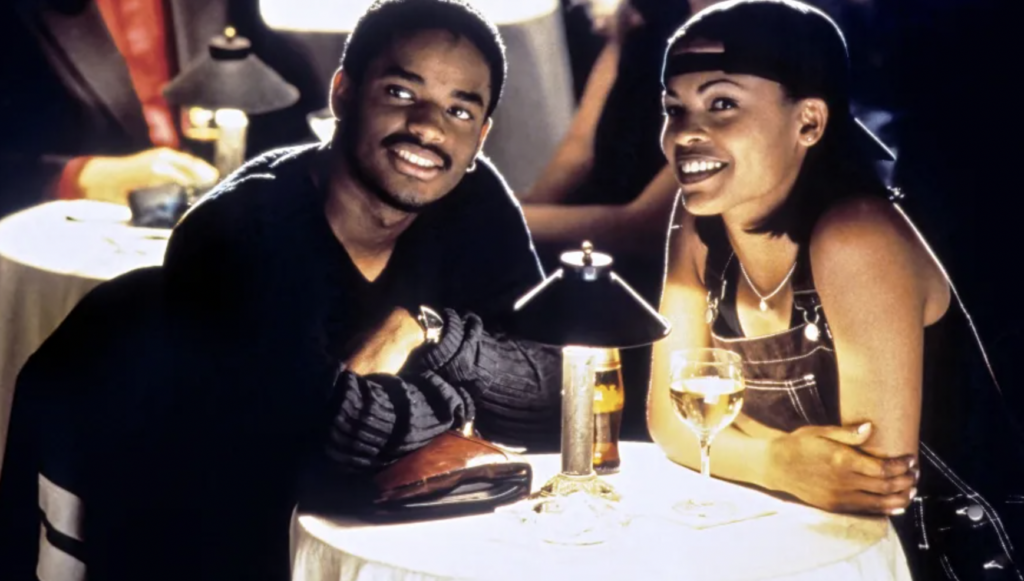
You cannot talk about Black love movies and not mention Love Jones, which may be the greatest Black love movie in the history of Black love movies. Starring Larenz Tate and Nia Long, the movie followed two young, Black, intellectual, aspiring creatives trying to navigate love at a time of incredible Black upward mobility and complexity. Darius, a poet, pursues Nina, a photographer, in what can only be described as an “intellectual’s will they or won’t they” love story. Unlike other films, their love story wasn’t driven by ridiculous obstacles or incredible plot twists, but their ups and downs were simply marked by the everyday issues most couples run into: timing, vulnerability, careers and outside relationships.
One of the most talked-about elements of the movie are of course around its use of poetry slams and intellectual dialogue. Darius’s use of a poem to “hit on” Nina early in the movie is iconic in both its underlying message and Larenz Tate’s impeccable delivery. And the conversations between Nina, Darius, as well as their friend group, showed a side of Black life that had hardly been depicted prior to Love Jones and was very emblematic of a time of increased Black college attendance rates in the 90s.
Love Jones impact on the culture and movies as a whole was undeniable. For the culture, I believe the movie really sets a decade’s long stage for how we as Black people looked at relationships. For a long time, Hollywood had really only depicted Black love in one of two ways. First, as impoverished and desperate, seeking love when there was nothing else to hold on to. And second, Hollywood depicted Black love as almost holier than thou—the perfect Black relationship, with next to little issues, such as with The Cosby Show. But Love Jones showed Black love in a much more complex way. It showed that we can be flawed but loving couples—comprised of individuals that mistakenly hurt each other, and do so whilst in the pursuit of our careers and passions and managing the ebbs and flows that all brings into our relationships.
As for its impact on film, the way Love Jones was able to resonate with Black audiences through its portrayal of Black intellectual and artistic life was truly amazing. It introduced an era of what we can (somewhat) jokingly call “bougie black love movies” like Brown Sugar, The Best Man, and even a lesser known film like Medicine for Melancholy.
How Stella Got Her Groove Back (1998)
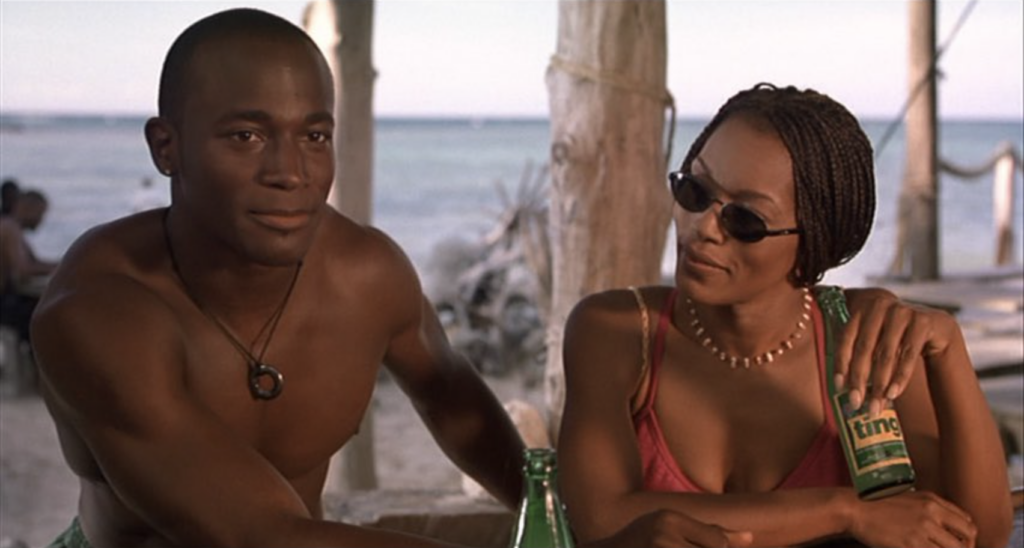
The people who flocked to watch Waiting to Exhale in 1995 were almost surely on board to watch How Stella Got Her Groove Back when it dropped in theaters in 1998. Angela Bassett was a star in both, but it was her role in the latter that catapulted her to true fame as her character, Stella, took on the rarely told story of single, middle-aged, Black mothers and their search for love.
It’s hard to imagine you don’t already know what How Stella Got Her Groove Back is about, as it is often the reference point, especially in Black circles, for older Black women dating younger Black men. But let’s pretend you forgot. Put simply, it told the story of Stella traveling off to Jamaica for a much needed vacation and having an emotional, personal and romantic awakening on the island as she found love in Winston, a man 20 years her junior, played by Taye Diggs in what would be his breakout role.
Naturally, their romance is full of issues. Obviously, there was the issue of age, which Stella, as a super successful business woman, found it hard to grapple with in face of all of society’s expectations of her. Then there was the issue of self-doubt, as Stella, coming into the relationship, was already in a place of trying to figure out who she was. Thus, her being paired up with an overconfident, somewhat immature, and highly desirable young man didn’t exactly put her in the best position to find her self-confidence. And then there were the cultural and location-based issues, as Winston hailed from a traditional Jamaican family, while Stella was a modern, divorced, Black woman of the 1990s in the corporate world of liberal San Francisco.
Ultimately, what makes this movie significant in the pantheon of Black love movies is not that Winston and Stella find a way to be together, but that it depicted a powerful, smart, successful Black woman, who yes, was flawed, but who was also able to take control of her destiny in face of everything society says a Black, single mother should be. How Stella Got Her Groove Back did away with the tropes of the Black woman needing saving or help from a man, but instead showed us that a woman who finds purpose in her own life can also be sensual and deserving of love.
The Best Man (1999)
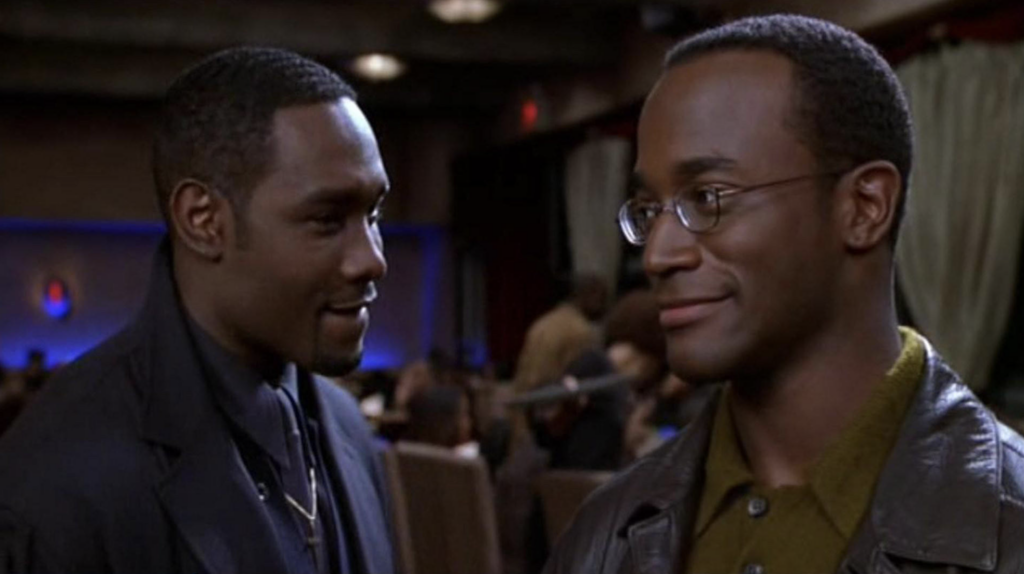
For a long time, and possibly to this day, The Best Man was my favorite movie. I first saw this in theaters when I was just 15-years old, and my best friend and I talked the ticket booth guy into letting us buy tickets. And I’m glad I talked my way in there, because what I saw was an excellently written and acted movie that took on Black love in a singular way that very few movies have been able to replicate.
The Best Man tells the story of Harper, an aspiring novelist, who is on the precipice of releasing his first book as he ventures off to the wedding of his best friend, and NFL athlete, Lance. The wedding is a 5-ish-year college reunion of sorts, as Harper and Lance’s entire college friend group is in attendance. The unfortunate part about that though is Harper’s novel is basically a fictionalized version of his crew’s time in college, and it includes realistic retellings of some of the not-so-above-board actions that took place among the friend crew while they were in school—many of the stories unknown to some members of the group all these years later. As the stories from Harper’s book come to light, we see friendships tested, old flames awakened, and new loves born in some of the fiery aftermath.
As I mentioned before, The Best Man did follow in the footsteps of Loves Jones, bringing about an intellectualism that was indicative of the Black 90s empowerment era. However, the movie was masterful in mixing the growing educational attainment of Black people with the traditions and ways of Black culture that made the movie all that much more relatable. Not only were we watching Black people in high achieving careers and using big scholarly words, but we also saw these same characters show off musical talents, demonstrate an affinity for the Lord, and use the word nigga in a colloquial fashion that just about every Black person is familiar with.
Of course, I’d be foolish to ignore the complex love story told here, because it is complex. It’s a tangled web of a holy, but unfaithful, athlete marrying the love of his life who happens to be an angelic, but once disloyal, college classmate. It’s also a story of a somewhat narcissistic, up-and-coming Black artists unsure of what or who he wants in his life having to determine is he even ready for love. It’s even the story of a disheveled, earnest, young man in love with his long-time girlfriend realizing he’s been in an unhealthy relationship and ultimately finds potentially real love elsewhere. With all of those stories, which overlap in an intricate, yet funny, and well-told fashion, The Best Man isn’t a singular love story, but a series of paralleling Black love stories that were so in depth and so engaging, that we just had to see more and more of them. That’s is why we got both a sequel and a TV series out of this movie.
The Wood (1999)
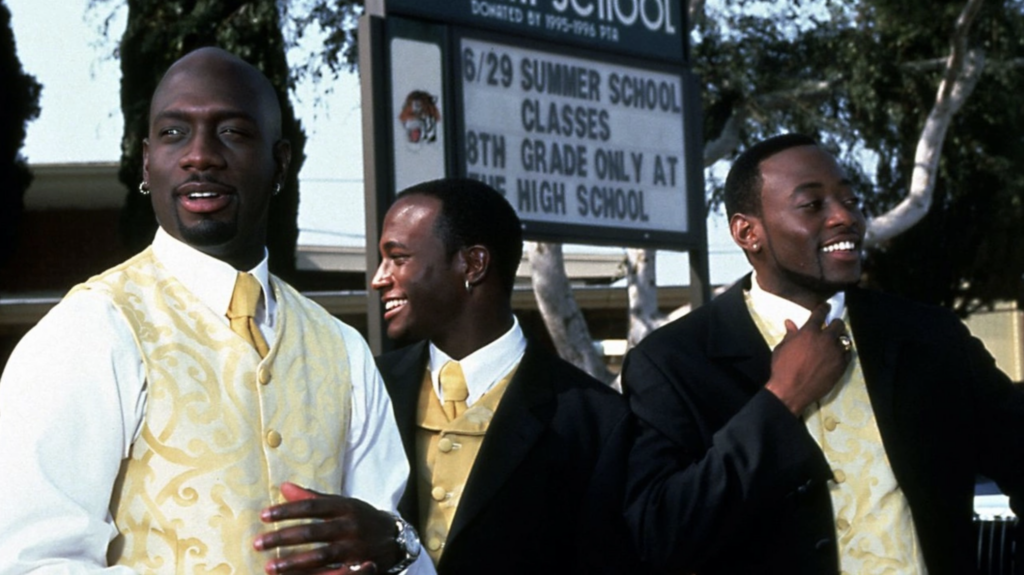
The Wood tells the story of a group of friends growing up in Inglewood, California (aka “The Wood”). It was directed by Rick Famuyiwa, one of the great Black storytellers of our time. For me, and many others, this movie was one of the more nostalgic movies of its time, and is unique in its ability to intertwine a crew’s “hood” coming-of-age-story with a love story in a way that doesn’t take away from either message.
The movie focuses on three, Black male friends and basically takes place over two timelines: One, in the present day as the crew gets ready to marry off their silly, immature friend Roland. The other timeline is presented through a series of flashbacks to their adolescence, starting with Mike’s arrival in Inglewood after moving from North Carolina. While Mike and Slim, the third friend, try to get a nervous Roland down the aisle, we hear stories of their past, the one most central story to everything being Mike’s relationship with Alicia.
The Wood is best known for capturing the awkwardness, warmth and humor of teenage relationships, while not undermining the amazing innocence of young love. It has a number of relatable moments, from making new friends and approaching your high school crush, to dealing with your girlfriends big brother and your first time having sex. Somehow, someway, Famuyiwa was able to get all of that, and more, into flashback scenes that were as memorable as as they were often funny, leaving a mark on all viewers, whether you were there for the love story or just the laughs.
Honestly, I’ll admit that maybe not everyone sees this as a Black love story. But allow me to tell those people why they’re wrong. First, as I’ve mentioned before, Black love stories are not limited to those between two romantic individuals, but it should also include the enduring love of friendships, and there’s no doubt that The Wood demonstrates just show strong a bond three, young, Black boys can develop, even in the harshest of realities. Second, the soundtrack on this movie is love personified, as it borrows from many Black love songs from the 80s and 90s, including Blackstreet’s “Think About You” and Joe’s “I Wanna Know”, almost always played during the most significant moments of the movie. And lastly, The Wood depicted how lovers can grow a part, yet the movie still suggests that just because we didn’t end up with that first love, it doesn’t mean the love doesn’t stick with you, perhaps forever, as the innocence of that first love is often hard to replace.
Two Can Play That Game (2001)
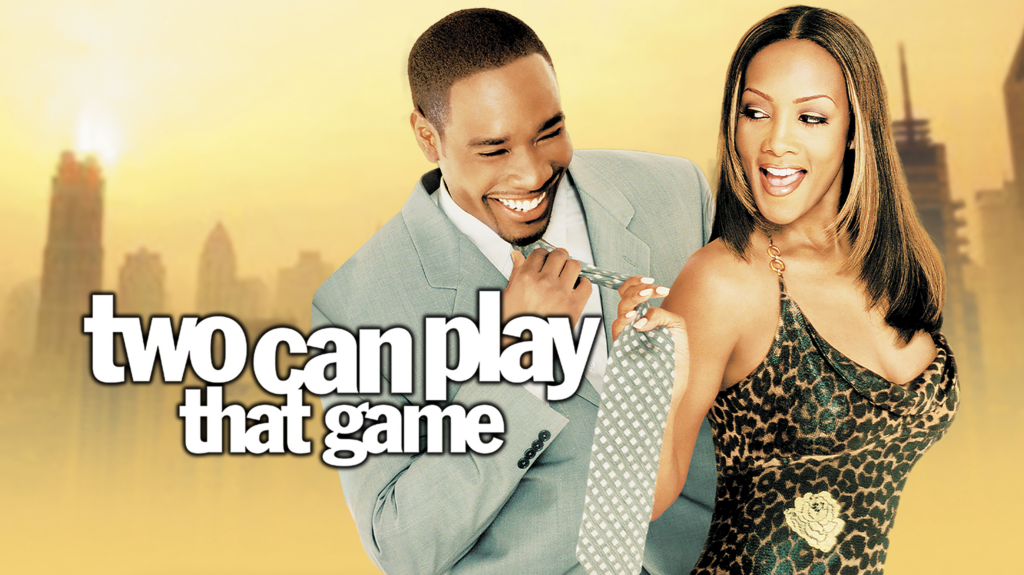
Love & Basketball (2001)
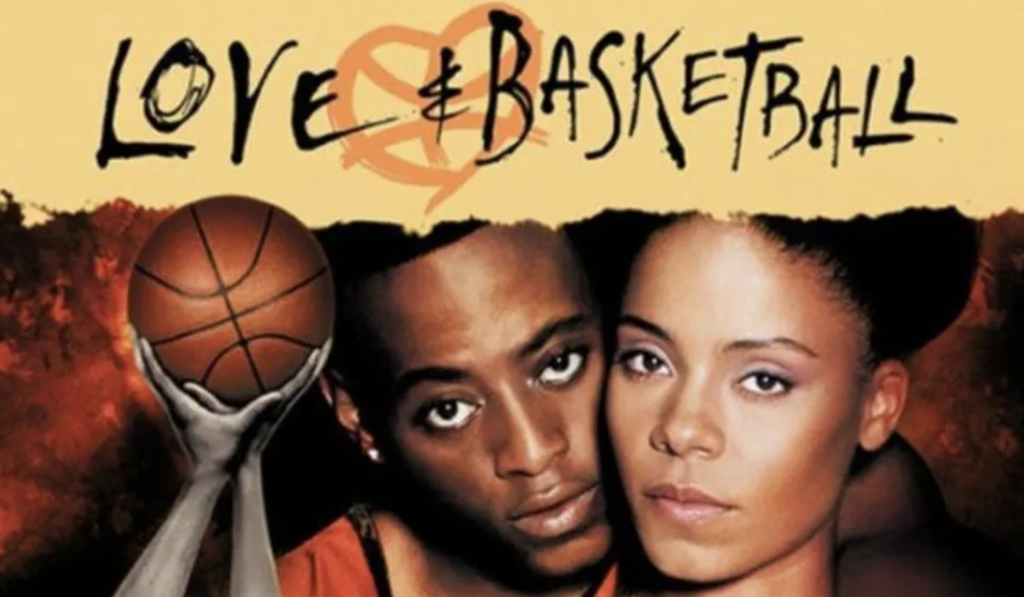
Brown Sugar (2002)
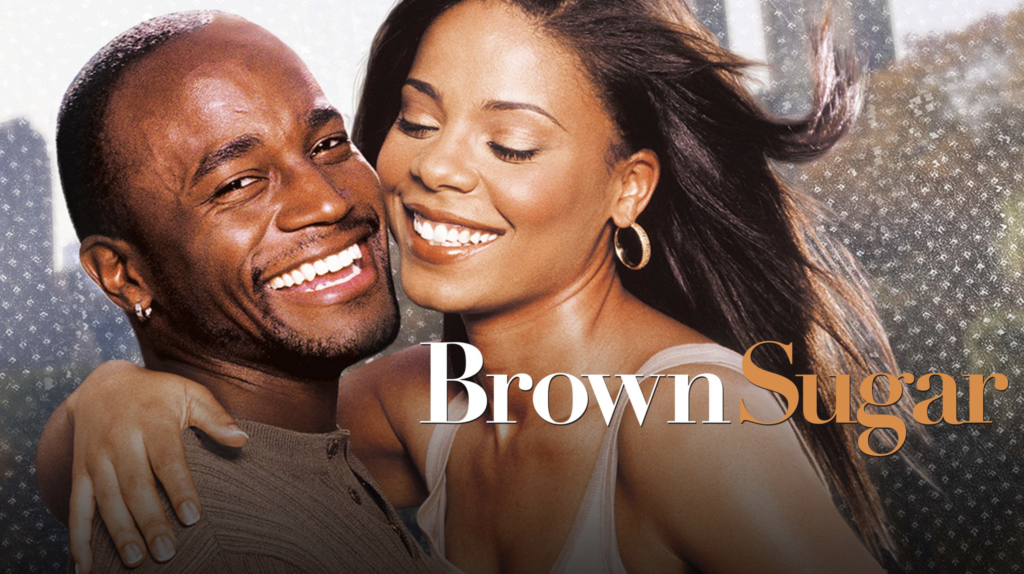
Just Wright (2010)
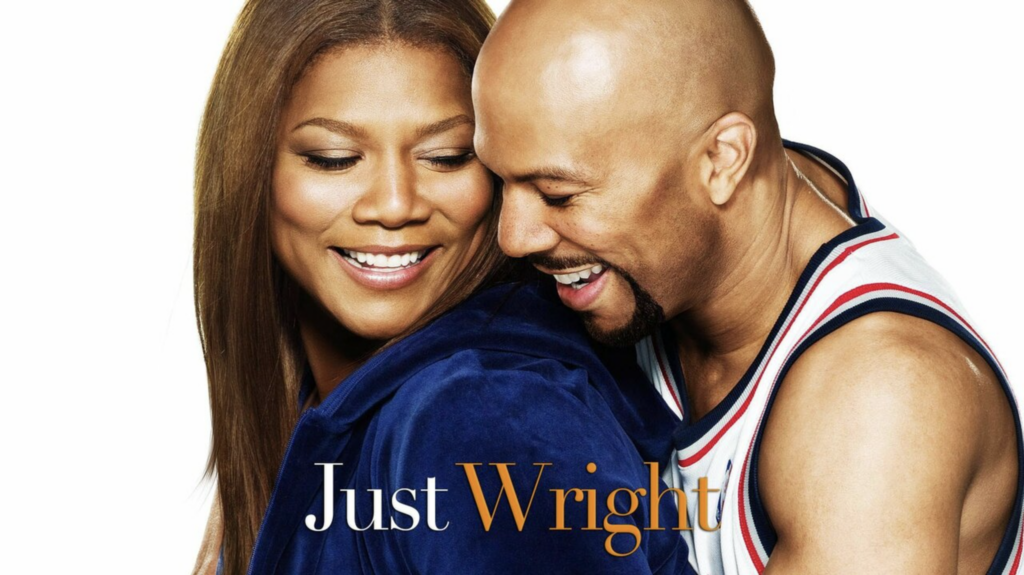
Think Like A Man (2012)
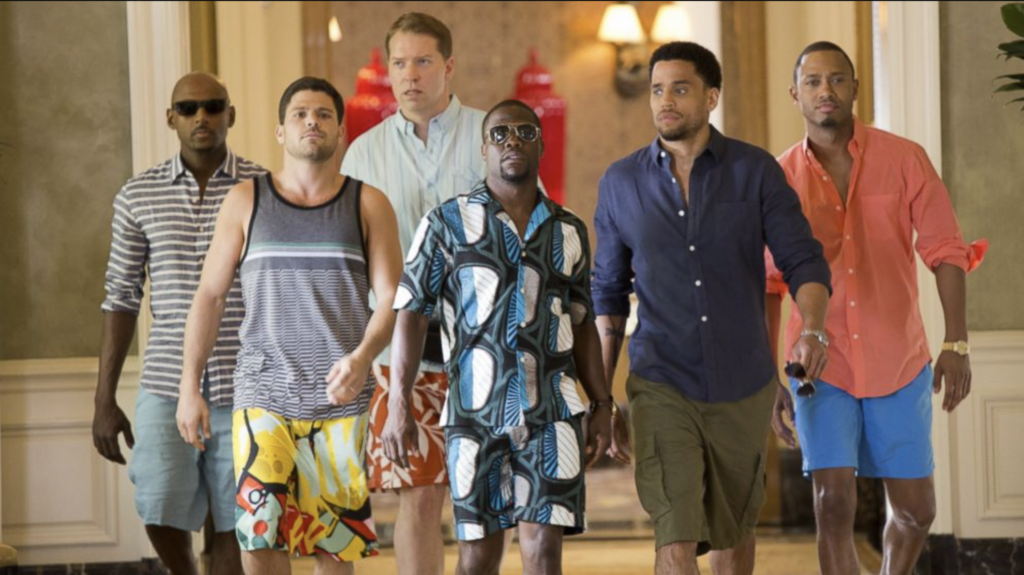
Beyond the Lights (2014)
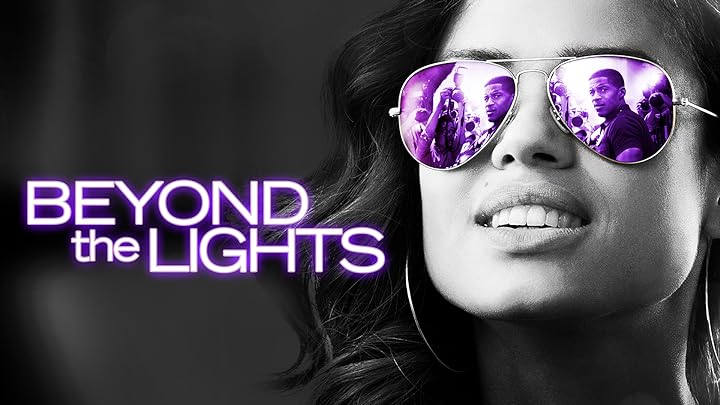
If Beale Street Could Talk (2018)
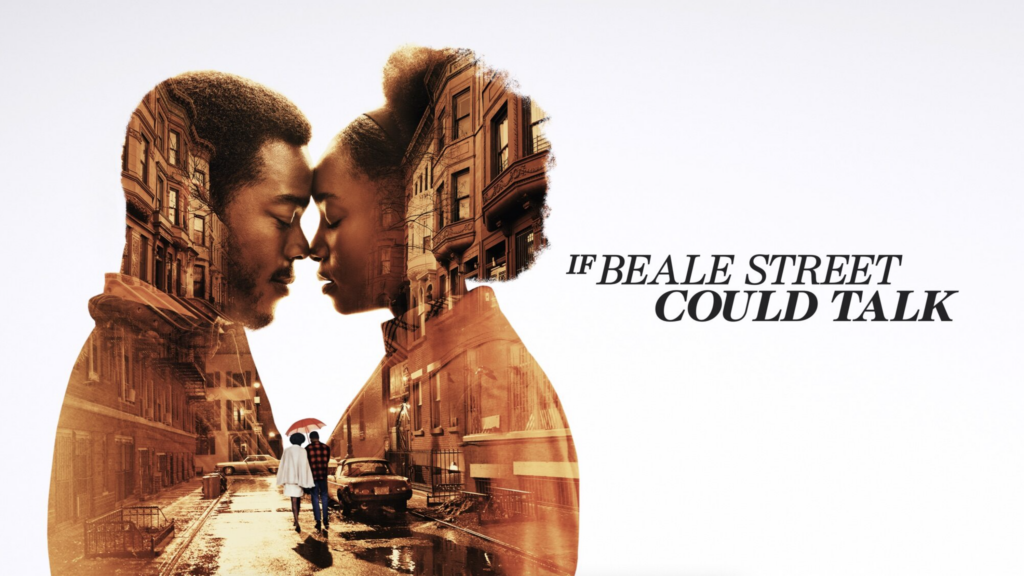
The Photograph (2020)
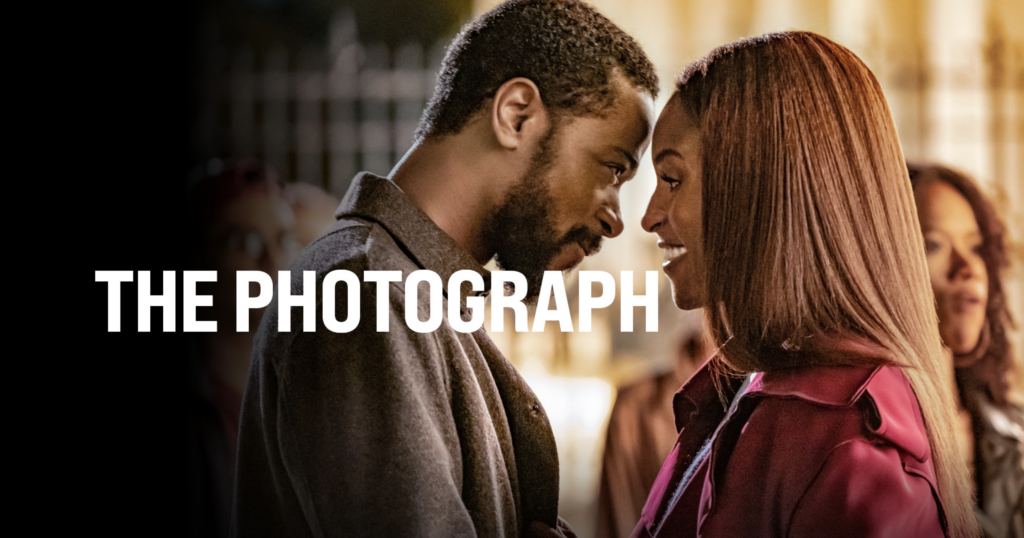
Rye Lane (2023)
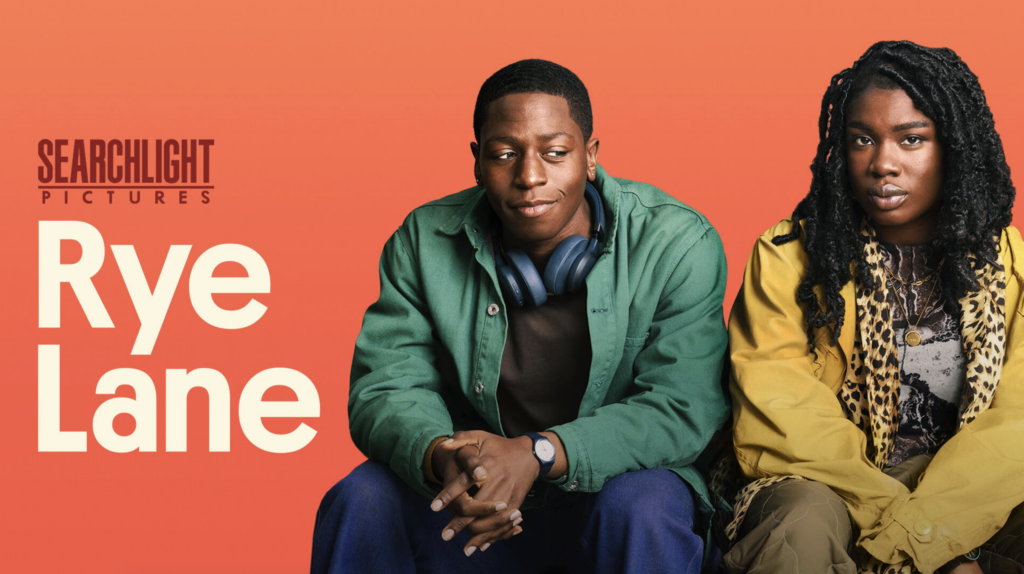
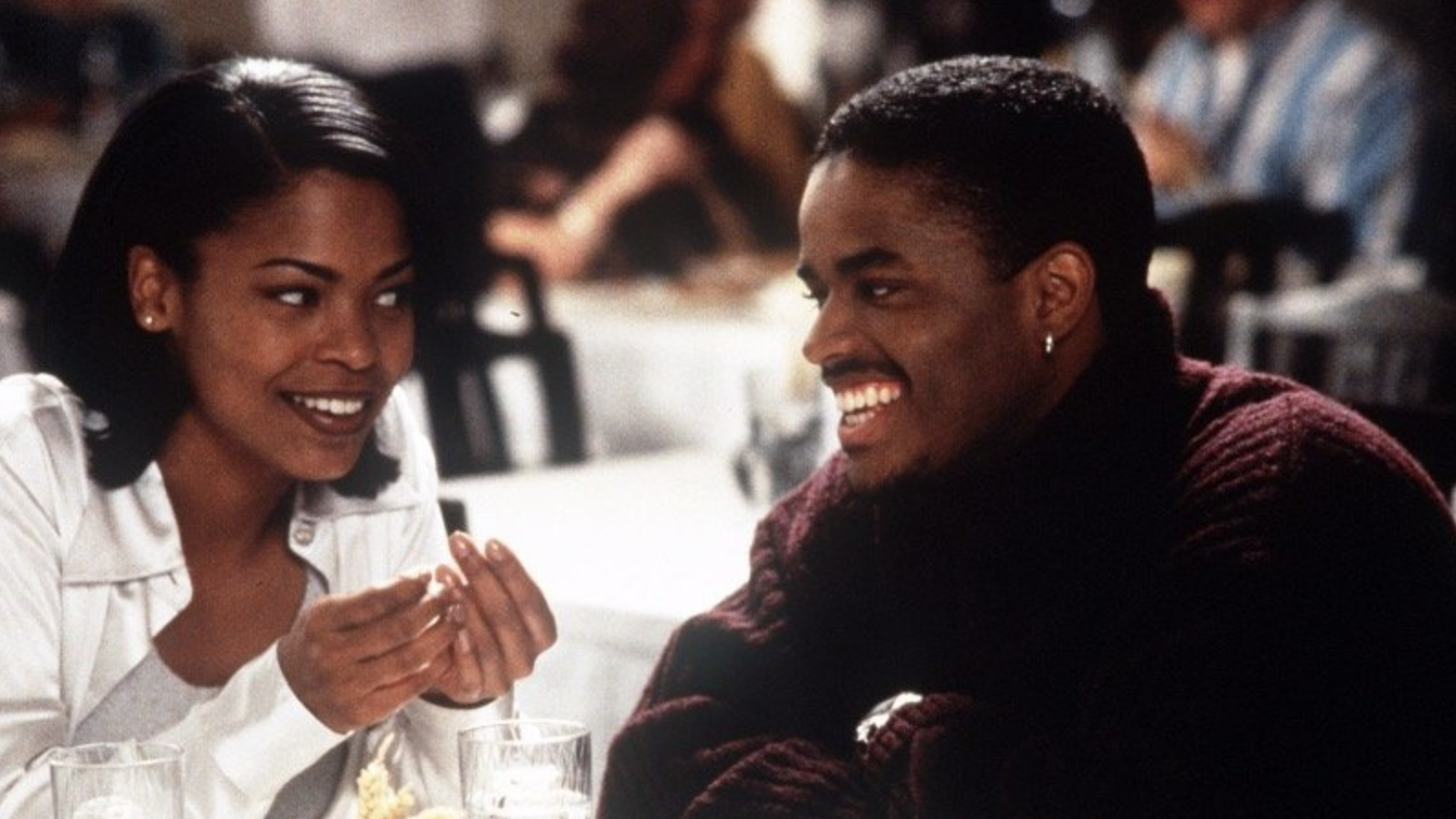
Leave a Reply
You must be logged in to post a comment.